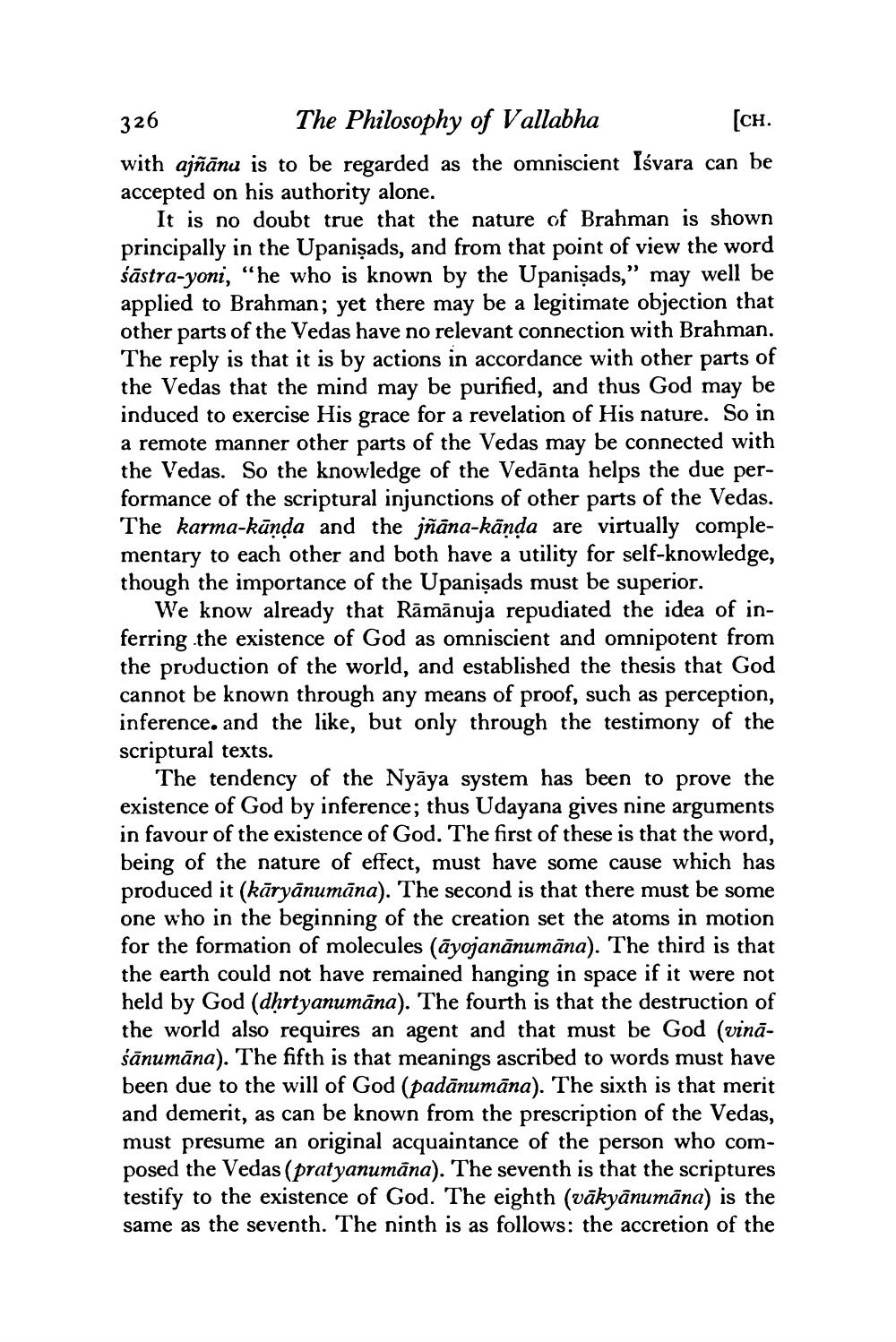________________
326
The Philosophy of Vallabha
[CH.
with ajñānu is to be regarded as the omniscient Isvara can be accepted on his authority alone.
It is no doubt true that the nature of Brahman is shown principally in the Upanisads, and from that point of view the word śāstra-yoni, "he who is known by the Upanisads," may well be applied to Brahman; yet there may be a legitimate objection that other parts of the Vedas have no relevant connection with Brahman. The reply is that it is by actions in accordance with other parts of the Vedas that the mind may be purified, and thus God may be induced to exercise His grace for a revelation of His nature. So in a remote manner other parts of the Vedas may be connected with the Vedas. So the knowledge of the Vedanta helps the due performance of the scriptural injunctions of other parts of the Vedas. The karma-kāṇḍa and the jñāna-kāṇḍa are virtually complementary to each other and both have a utility for self-knowledge, though the importance of the Upanisads must be superior.
We know already that Rāmānuja repudiated the idea of inferring the existence of God as omniscient and omnipotent from the production of the world, and established the thesis that God cannot be known through any means of proof, such as perception, inference. and the like, but only through the testimony of the scriptural texts.
The tendency of the Nyaya system has been to prove the existence of God by inference; thus Udayana gives nine arguments in favour of the existence of God. The first of these is that the word, being of the nature of effect, must have some cause which has produced it (kāryānumāna). The second is that there must be some one who in the beginning of the creation set the atoms in motion for the formation of molecules (ayojanānumāna). The third is that the earth could not have remained hanging in space if it were not held by God (dḥrtyanumāna). The fourth is that the destruction of the world also requires an agent and that must be God (vināśānumāna). The fifth is that meanings ascribed to words must have been due to the will of God (padānumāna). The sixth is that merit and demerit, as can be known from the prescription of the Vedas, must presume an original acquaintance of the person who composed the Vedas (pratyanumāna). The seventh is that the scriptures testify to the existence of God. The eighth (vākyānumāna) is the same as the seventh. The ninth is as follows: the accretion of the




